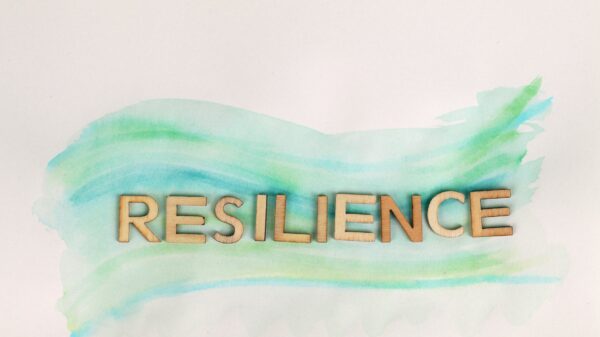Life is unpredictable and full of unexpected challenges. We all experience hardships, setbacks, and obstacles that can make us feel defeated and hopeless. But what separates those who bounce back from adversity and thrive in difficult times from those who crumble under pressure? The answer lies in resilience – the ability to adapt to change, cope with stress, and overcome obstacles. In this blog post, we’ll explore the concept of resilience, why it’s essential for personal development, and how you can build your own resilience to not only survive but thrive during challenging times. So grab a cup of coffee or tea and let’s dive into building resilience together!
What is Resilience?
Resilience is the ability to adapt and thrive in the face of adversity. It is a key ingredient for success in life, and it is something that we can all learn to develop.
There are many things that can build resilience, including a positive outlook, a strong support network, and effective coping skills. People who are resilient tend to be able to see challenges as opportunities for growth, and they have the strength to keep going even when things are tough.
Building resilience is not about being immune to difficulties – it’s about learning how to cope with them in a healthy way. When we are faced with adversity, we can either let it defeat us or use it as a chance to become stronger. The choice is ours.
Benefits of Building Resilience
Building resilience is key to overcoming adversity and thriving in difficult times. Resilience allows us to adapt to change, cope with stress, and bounce back from setbacks. It is a critical life skill that can be developed and strengthened with practice.
There are many benefits of building resilience, including:
1. Increased ability to cope with stress and adversity: When we build resilience, we become better equipped to deal with stress and setbacks. We learn how to adapt to change and cope with difficult situations. This allows us to lead healthier and more successful lives.
2. Greater life satisfaction: People who are more resilient tend to be more satisfied with their lives overall. They also report higher levels of happiness and well-being. This is likely due to the fact that they are better able to overcome challenges and achieve their goals.
3. Enhanced physical health: Resilient individuals tend to have better physical health than those who are less resilient. They are less likely to experience chronic diseases such as heart disease, diabetes, and obesity. Additionally, they recover from illness and injury more quickly than those who lack resilience.
4. Improved mental health: People who are resilient often have better mental health than those who are not as resilient. They experience fewer symptoms of anxiety and depression, and they are better able to cope with stressful events. Additionally, they are less likely to develop substance abuse problems or engage in self-destructive behaviors.
Strategies for Building Resilience
There is no one-size-fits-all approach to building resilience. However, there are some key strategies that can help you develop this important life skill.
Some effective strategies for building resilience include:
1. Finding a role model or mentor who has overcome adversity. Learning from someone who has first-hand experience of overcoming adversity can be an incredibly powerful way to develop your own resilience.
2. Practicing gratitude. When faced with difficulties, it can be easy to focus on what’s going wrong in your life. However, research has shown that practicing gratitude can actually help increase levels of resilience.
3. Identifying your personal strengths and values. Knowing what you stand for and what you’re good at can give you the confidence to face challenges head-on.
4. Developing a support network of family and friends. These people can provide invaluable emotional support when times are tough.
5. Taking care of yourself physically and emotionally. Resilient people tend to have healthy coping mechanisms in place, such as exercise, relaxation techniques, and a good diet.
6. Keeping things in perspective. It’s important to remember that setbacks are usually temporary and that they don’t define you as a person
Self Care and Resilience Building
Self care is a critical part of resilience building. When we take care of ourselves, we are better able to cope with difficult times and bounce back from adversity.
There are many different ways to practice self care. Some important self care activities include: getting enough sleep, eating healthy foods, exercising regularly, spending time in nature, practicing meditation or mindfulness, and spending time with loved ones.
It is also important to have a support system in place when times are tough. This could include family and friends, therapist, or a support group. Having people to talk to who understand what you’re going through can be a huge help during difficult times.
Building resilience takes time and effort, but it is worth it. When we are resilient, we are better equipped to handle whatever life throws our way.
Practical Tips for Practicing Resilience in Everyday Life
When it comes to developing resilience, there are many different approaches that can be taken. However, one of the most important things to remember is that resilience is a process, not a destination. In other words, it’s something that you have to work at every day. Here are some practical tips for practicing resilience in everyday life:
1. Acknowledge your emotions: It’s important to acknowledge your emotions and allow yourself to feel them. Suppressing your emotions will only make things worse in the long run.
2. Take care of yourself: In order to be resilient, you need to take care of yourself both physically and emotionally. Make sure to get enough sleep, eat a healthy diet, and exercise regularly.
3. Build a support network: Lean on your friends and family when times are tough. They can provide you with the emotional support you need to get through difficult times.
4. Find a positive outlet: When you’re feeling down, find an activity that makes you feel good. This could be listening to music, reading, spending time outdoors, or anything else that brings you joy.
5. Practice gratitude: One of the best ways to increase resilience is by practicing gratitude on a daily basis. Be thankful for the good things in your life, no matter how small they may seem
How to Overcome Adversity
It is estimated that over 60% of people will experience a major life event or trauma at some point in their lives. While some people are able to overcome adversity without any lasting effects, for others, the experience can be devastating and have a lasting impact on their lives.
There are many different ways to overcome adversity, and what works for one person may not work for another. However, there are some general principles that can be helpful for anyone who is trying to overcome a difficult situation.
1. Acknowledge the situation.
The first step to overcoming adversity is to acknowledge that something difficult has happened. This may seem obvious, but it is important to resist the temptation to deny what has happened or pretend that everything is fine when it isn’t. Acknowledging the reality of the situation is an important step in the healing process.
2. Allow yourself to feel your emotions.
After acknowledging the situation, it is important to allow yourself to feel your emotions. It is natural to feel a range of emotions after experiencing a traumatic event, and it is important to give yourself time and space to process these emotions. Trying to bottle up your emotions will only make them harder to deal with in the long run.
3. Seek support from others.
One of the most important things you can do when trying to overcome adversity is to seek out supportive relationships with other people. Lean on your friends and family members for emotional support, and
Conclusion
Building resilience is an important skill that everyone should learn. It allows you to better handle adversity, build confidence and create a more positive outlook on life. There are many ways to develop resilience, from lifestyle changes like getting enough sleep and exercise, to engaging in self-reflection activities such as journaling or meditation. No matter what route you take, learning how to become resilient will help equip you with the necessary tools needed for overcoming difficult times and allowing yourself to thrive despite any challenges that life may throw your way.










